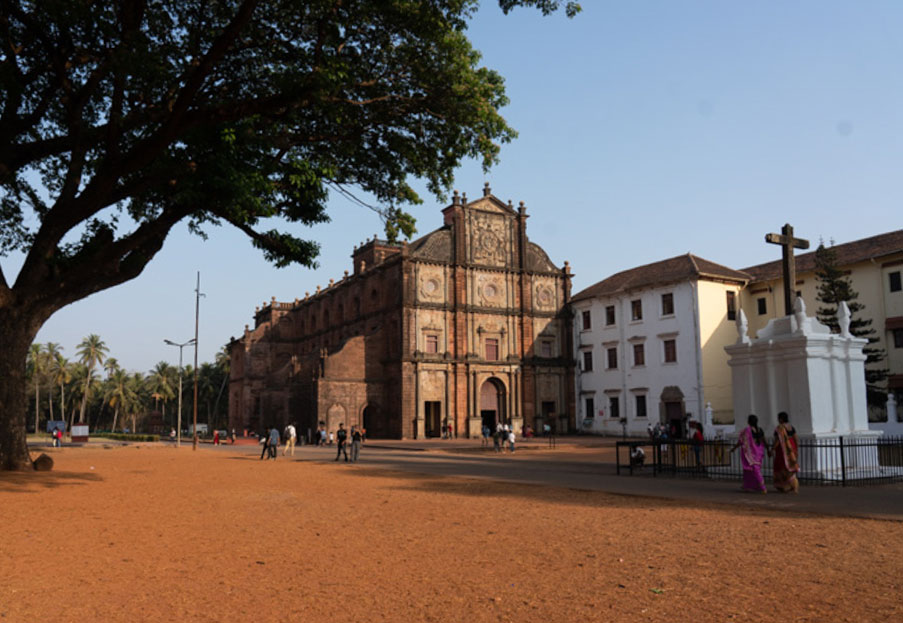For the Ignatian family in Spain… but not only for them
Personal memories, feelings about life during the coronavirus pandemic, a lucid and benevolent look at the Church and what is going on in her, perspectives on religious life and, of course, the meaning of Ignatius’ wound and conversion for today. This was quite a programme for the interview with Father General conducted by the journalist Silvia Rozas Barrero, FI, on 20 May at the Jesuitas Maldonado centre in Madrid.
On his first trip outside Rome since March 2020, Fr Arturo Sosa visited Spain. It was first and foremost to participate in the inauguration of the Ignatian Year in Pamplona, in Navarre. On the way, he made brief stops in Madrid and Javier. In Madrid, a virtual meeting was organised for all those, mostly lay people but also religious, who are connected to the Society of Jesus by their activity or spirituality. Here are some highlights of what the Superior General shared.
We are in a time when the key to our future is to know how to count on the diversity among people who, together and only together, can face the current challenges, both of the Church and of society. Let us always remember the image that St Paul used, that of the body. We need each other, we need the complementarity of vocations. To ensure the strength of this complementarity, we are invited to grow in the practice of discernment.
The
entire course of the present Society of Jesus is marked by the experience of
discernment which took place during the 36th General Congregation.
It led to the identification of the Universal
Apostolic Preferences that are lived out in a context of spiritual
accompaniment, particularly dear to Pope Francis. The mission of the Society of
Jesus, at the service of the Church, is strengthened by the Pope’s way of
accompanying the Society, from the moment he confirmed the Preferences and transformed them into a mission given to the
Society. It is a meaningful experience that we are undertaking.
Not surprisingly, the topic of the Covid 19 pandemic was raised. Father Sosa expressed concern about the change in perspective he has perceived in recent months. Whereas during the “first wave”, many voices were raised to emphasise how the planetary ordeal we were undergoing should lead to profound changes in the way we live, in the way we consider the environment, and in the way we share resources with a view to greater fraternity, he now hears all too often the desire for a “return to normal”. A ‘normality’ that led to the crisis and cannot be a guarantee for a better future.
In his view, the pandemic brings a confirmation of the Society’s Apostolic Preferences. People need direction to find a profound meaning to their lives, to find God. The fragility of all requires mutual concern, but we see that it is the poorest or most marginalised people who suffer most from the pandemic and who need to be accompanied. The prospects for the future are difficult to identify for young people; they need to be heard in their distress and in their desire for a new society. And, of course, the earth itself, in its ecological dimension, has been wounded: this is the origin of the pandemic. In these four fields, Jesuits and all members of the Ignatian family are called to commit themselves. For example, in Europe, all four preferences meet in the field of migration and the challenges it raises.
It is not possible to report all the questions and answers of this long interview between Silvia Rozas and Arturo Sosa. Let us mention, however, how much Father General hoped that the Ignatian Year would be an opportunity for Jesuits and those close to them. May they find the courage, in the conversion experience of Ignatius, to overcome the suffering of various personal and collective wounds.
Even
though the conversation highlighted many of the challenges and difficulties of
our world, Father Sosa, at the end, said that he was a man of confidence. He
relies on his faith. He identifies areas of light. For the Church, he thinks
that finally, thanks to the synodality put forward by Pope Francis, the notion
of “people of God” is bearing fruit, changing the way we look at things. For
the Society, the commitment to create conditions that allow more people to
benefit from the treasure of Ignatian spirituality and the revived commitment
to create spaces of freedom and service, all of this makes him believe that one
can “see everything new in Christ”.







